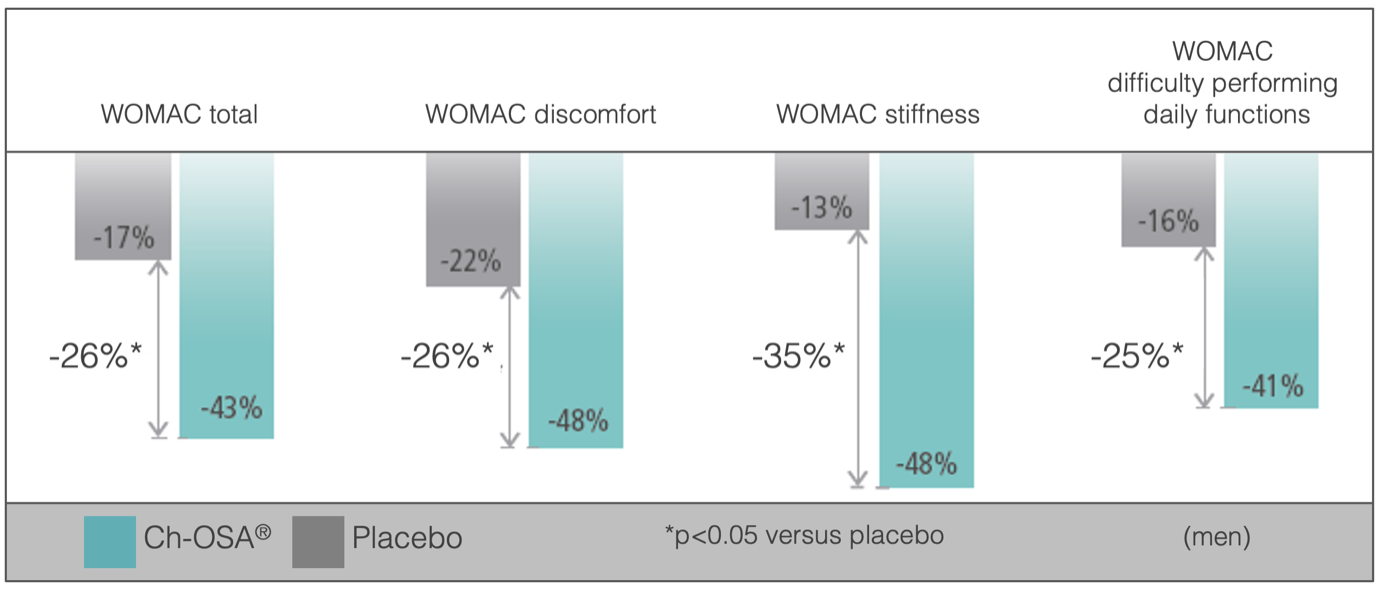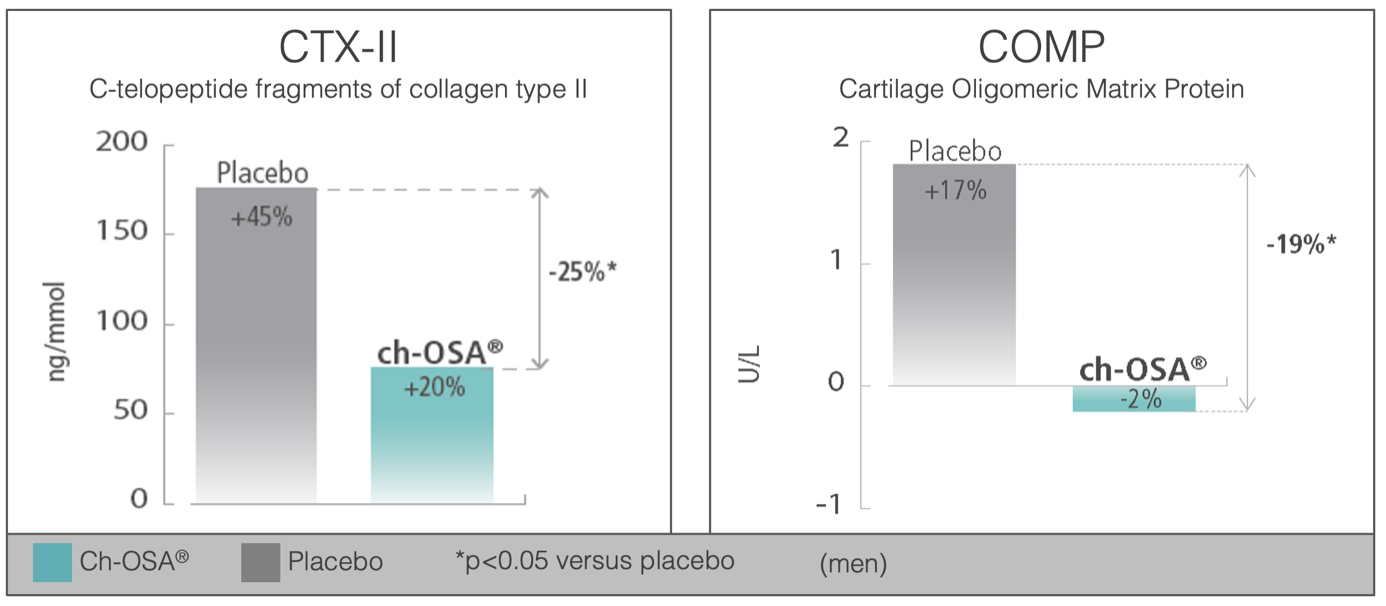Clinical Trials: Knee Osteoarthritis
This randomized, double-blind, placebo-controlled, multi-center study of 166 people took place over 12 weeks, and was led by Professor Piet Geusens of the Biomedical Research Institute at University Hasselt, Belgium. It was co-authored by K. Pavelka (Institute of Rheumatology, Prague); J. Rovensky (National Institute of Rheumatic Diseases, Slovakia); J. Vanhoof (ReumaClinic, Belgium); N. Demeester and M. Calomme (Research & Development, Bio Minerals, Belgium); and D. Vanden Berghe (University of Antwerp, Belgium). The study was peer-reviewed and published in the journal BMC Musculoskeletal Disorders in 2017.
The research aimed to study the efficacy of ch-OSA® on symptomatic osteoarthritis of the knee.
What we found
Researchers found a significant improvement in men taking ch-OSA® compared to men in the placebo group. After 12 weeks, men taking ch-OSA® reported:
- 26% less knee discomfort than men in the placebo group
- 35% less knee stiffness than men in the placebo group
- 25% better daily function than men in the placebo group
Summary
The improvement in cartilage degradation was also markedly better for men taking ch-OSA®. Biochemical markers of collagen degradation in the blood and urine were significantly lowered. After 12 weeks, researchers found that men taking ch-OSA® had:
- 25% less CTX-II (C-telopeptide fragments of collagen type II) than men in the placebo group
- 19% less COMP (cartilage oligomeric matrix protein) than men in the placebo group
Participants
The participants were 166 people (120 women and 46 men); between the ages of 50 and 75, with clear symptoms of cartilage loss in the knee.

Figure 1: The reported discomfort, stiffness, and difficulty performing daily functions of men with knee osteoarthritis; men who took ch-OSA® versus men in the control group. WOMAC is a widely-used and validated self-assessment measurement for how joint health impacts people.

Figure 2: The presence of biochemical markers of cartilage degradation in men who took ch-OSA® versus men in the control group.
Conclusion
The researchers believe the observed improvements in joint discomfort and mobility are due to the positive effects of ch-OSA® on collagen in cartilage, ligaments, tendons, and bone.